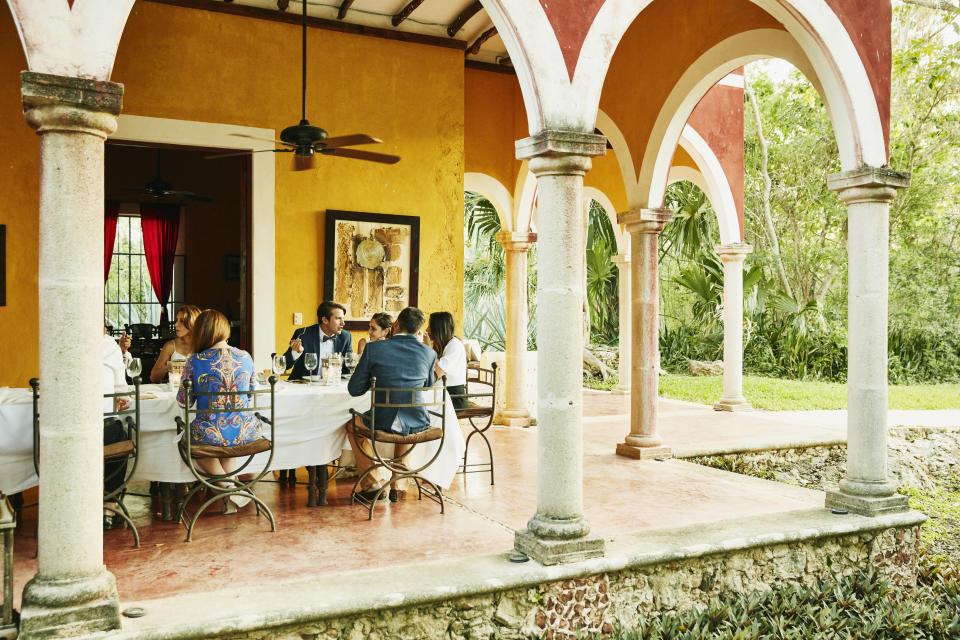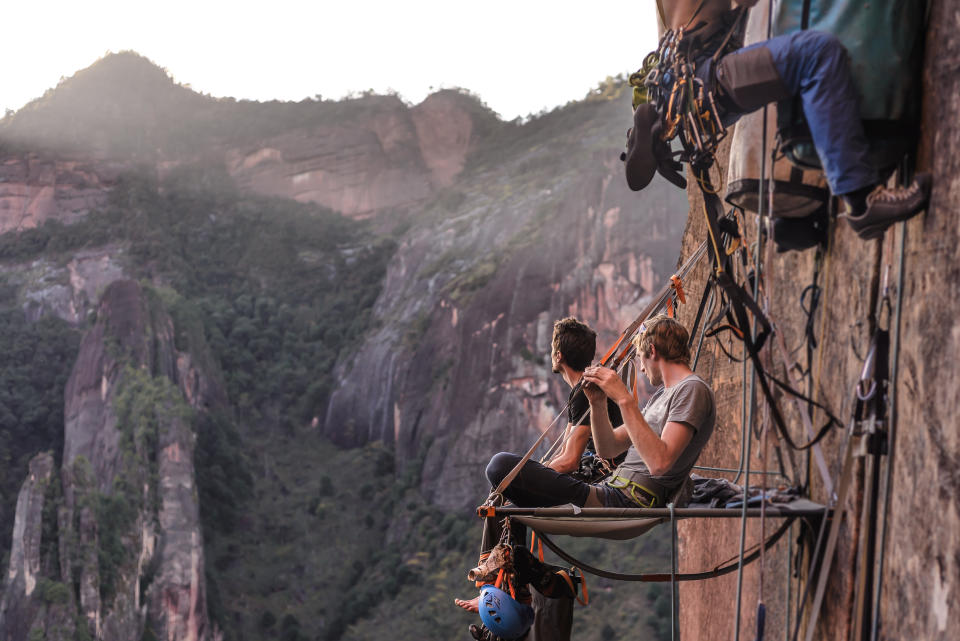People are seeking a new kind of travel experience: how are they getting it?

It used to be the case that travellers booked their trip via a high street travel agent, a bureaucratic process involving lots of handwritten forms and documents requiring a signature. You could only check in at the airport, which meant you had to get there well in advance to avoid the queues, and your choice of destination was generally limited to major city hubs, with flights themselves being far more expensive than they are today.
When the World Wide Web arrived at the start of the 1990s, all this began to change. A couple of decades into this transformation and travellers can now choose from a dizzying range of travel destinations, packages, flights and hotels, and they can book them all remotely in a matter of minutes. Online competition for their custom has become intense. Today’s traveller expects and demands a more seamless and personalised travel experience, and platforms like Booking.com aim to provide it.
With more than 28 million property listings in 147,000 destinations worldwide and a staggering 173 million guest reviews, Booking.com now has access to over two decades’ worth of trends, data and insights, not just about how we travel but also how we think about travel. As a consequence, they’ve been able to chart the changing habits of travellers from Generation X to Generation Z and what this data reveals is that today’s traveller is seeking a new kind of experience. They are increasingly valuing activities, events and uniquely memorable experiences over traditional holiday packages, luxury hotels and consumer splurges.

Authentic accommodation
Take accommodation as an example. Homes and apartments are a popular alternative to hotels, and for many people they have become the norm, demonstrating the desire for a more authentic experience of a destination. That’s because these types of stays are a great way of immersing yourself in the local culture, providing a more organic, immediate and intimate experience of a place and the people who live there.
“With such extraordinary choice, travellers are guided by their own imagination and curiosity,” says Eric Bergaglia, Senior Director at Booking.com, who is responsible for alternative accommodation. “If you want to camp out in an igloo, chill out in a yurt or nap in the branches of a treehouse, you can do that.”
Doing, not just going
It’s not just staying somewhere unique or unusual that takes precedence for today’s traveller, but also what they are doing when they get there. What that ‘doing’ amounts to for travellers could be anything, from the more traditional activities like hiking, rock-climbing, surfing or skiing, to using their break to develop themselves in some way – so-called ‘appren-trips’.

Appren-trips see travellers using their time abroad to learn a skill or craft, take part in volunteering or otherwise make their travel experience more meaningful or useful. Recent Booking.com research, conducted across 21,500 people in 29 markets, shows that over half of global travellers (56%) agree that travelling has taught them invaluable life skills. And of those interested in this kind of travel, 68% would like to take part in a cultural exchange to learn a new skill. This could be anything from learning how to cook Thai food in Bangkok or helping create a water supply in Malawi, to brushing up on carpentry skills in Canada. The limit is only ‘imagination and curiosity’, and just as the internet opened up the concept of staying in someone else’s home to a global audience, so it is doing the same with the appren-trip, and is even combining the two. So you might not simply stay in a yurt on the central Asian steppes but actually learn cattle herding while you do it.
Sustainable travel
The appren-trip’s rise in popularity reveals today’s traveller to be more thoughtful and altruistic. According to the Booking.com study, almost half (49%) consider social and environmental issues when choosing where to go, with 58% choosing not to go to a destination if their presence is likely to have a negative impact. This trend towards sustainable and ‘conscious’ travel manifests itself in myriad ways, whether seeking out eco-friendly places to stay, being sure your destination treats those working in the tourist industry equitably, or even getting involved in an eco-project. ‘Conscious’ travel takes other forms too, such as considering the human rights record of a country you might potentially visit, or using platforms such as Destination Pride to determine how LGBT-friendly a particular country or city might be.

All of these trends point towards a demand among travellers for a more bespoke, tailored experience, especially important given that traditional two-week holidays are being replaced by short breaks. Short breaks mean that travellers need to maximise the time available, and so flexibility and adaptability are highly valued. On a short city break, a traveller might want to eat at a top restaurant, visit a must-see exhibition and take in a show, all in one day and often at short notice.
A seamless travel experience
In this mobile-first era, tailoring the entire travel experience to the individual requirements of the traveller is totally feasible. Especially as leading travel platforms are adopting a holistic approach to the way they offer experiences to customers. Take Booking.com, which now offers much more than just a room in a hotel. “As we increasingly connect customers with great things to do all over the world, we’re also learning rapidly what they really want and need from us,” says Isabel Beckermann, Regional Manager EMEA for Experiences at Booking.com. “Whether it’s skipping the line at the Rijksmuseum in Amsterdam or daring themselves to jump on the world’s tallest stadium swing in Durban, we want to give people friction-free access. As such, our approach is continuously evolving in order to meet their demands.”
So a text message might inform them of when tickets become available for a show they might like or a table opens up at a swanky restaurant, and it can all be done while they’re in situ, like a remote concierge, even providing QR codes so they don’t have to think about booking or fees.
“Our goal is to make every aspect of the journey as relevant and seamless as possible,” says Boris Mulder, Global Commercial Manager for Experiences at Booking.com . “So in addition to finding the perfect apartment for a romantic getaway, we also want to help you find your way from the airport, book a table at a cosy restaurant, help you book a boat tour, all in just a few taps of your smartphone.”
The future of the travel market depends on how effective companies are at accommodating the unpredictable, the spontaneous and the niche, as well as traditional requirements. And an agile tech department is essential to any platform wishing to offer a more complete package. If technology these last 20 years has dramatically changed how and why we travel, it’s also clear that this journey has only just begun.
If you like the idea of challenging yourself to shape the way people travel, explore a career at Booking.com.

 Yahoo Movies
Yahoo Movies 